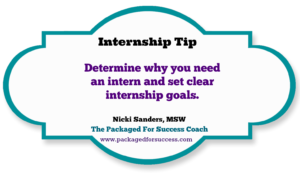How to Develop an Effective Internship Program at Your Company
Internship programs can help develop your recruiting efforts.
By Tony Delmercado
How do you get a job without experience and how do you get experience without a job? Let’s address this age-old question from the business owner’s perspective: How do I find the best young talent to train and then retain them?
The answer to both questions is a good internship program. One study from Georgetown University found that the starting salary for graduates with internships was 28 percent higher than for their peers without internships. That’s because they come prepared.
IBM certainly sees the value in nurturing potential employees. The recruiting team that runs its internship program views it as a “key feeder program for the next generation of IBMers,” knowing the best way to hire the best talent is to train them up from the beginning.
Facing the Fear of an Internship Program
Good internship programs aren’t all that common. Business owners are often reluctant to invest time, energy and resources into someone with little experience because, in essence, you’re giving them the tools they need to leave you.
What’s more, if you’re building a good company reputation and a good brand by hiring the talent you’ve incubated in-house, you’ll also become a “sexy” place to work. People will want to list you as an employer on their résumés because it makes them more attractive in the job market.
But don’t let those mostly unfounded fears stop you. Only 23 percent of people view training as a way to boost their skills in order to find new employment. Most just want to become great at the job they have.
Moreover, it’s never good to be a company that can only differentiate on pay. Many innovative companies are competing for the best and brightest, too, and an exciting opportunity — even for less money — will always win out in the end.
Starting a Winning Internship Program
The key to creating an effective program that serves you and your interns is building a culture that makes people want to stay. Here are three important aspects to consider and address to create that kind of environment:
- Make your definition of success obvious.
As interns work with you, be totally clear on the core values and behaviors of a successful person at your company. Look for those attributes that predict success, and make it clear to everyone involved what they are.
You really only win if you make the right hire anyway. These days, managers see cultural fit as a top priority, and there’s a reason for that. Don’t view your feeder program as training up people to leave, but as a way to weed out people who wouldn’t fit anyway.
At my company, we ask that candidates interview with the people they’ll work with, as well as a few others. In those interviews, we’re very frank about pros and cons of working with us. Don’t paint your organization as a bed of roses and let them know that only those people who will fit should remain after the feeder program ends.
- Develop an intern support system.
We went through a phase where our leadership was so stretched, we didn’t think we had the bandwidth to train our newest talent. They ended up being thrown into things way over their heads, which didn’t work.
Now, everyone on our leadership team spends a percentage of their time bringing people up to speed so they’re equipped to do their jobs well. This is why 89 percent of organizations mentor their technical employees to help them improve their skills.
Even talented interns who are great cultural fits need a support system. Put a team in place to help them buddy up with mentors. Don’t turn them loose on their own until you’ve worked out the kinks. When new recruits are partnered with someone else, the experienced employees can course correct in real time.
- Focus on desire.
The main thing you need to see in an internship program is desire. It’s easy to tell if someone wants to get better versus whether he or she feels dragged along. One incompetent rookie can decrease a team’s performance by 30 to 40 percent.
You don’t want to force passionate mentors and buddies to pick up slack for people who don’t want to learn. If interns are defensive, default to “no,” or are only motivated by money, they’ll drag the whole team down. You don’t want that person to stick around after the program ends. You might even consider terminating him or her from it early.
The truth is if you create a great company focused on helping all employees improve, a feeder program will benefit your recruiting efforts as much as it does your trainees. Just stay mindful of how it’s affecting your team and ensure that every player is adding value.
Article originally posted on Business.com.
